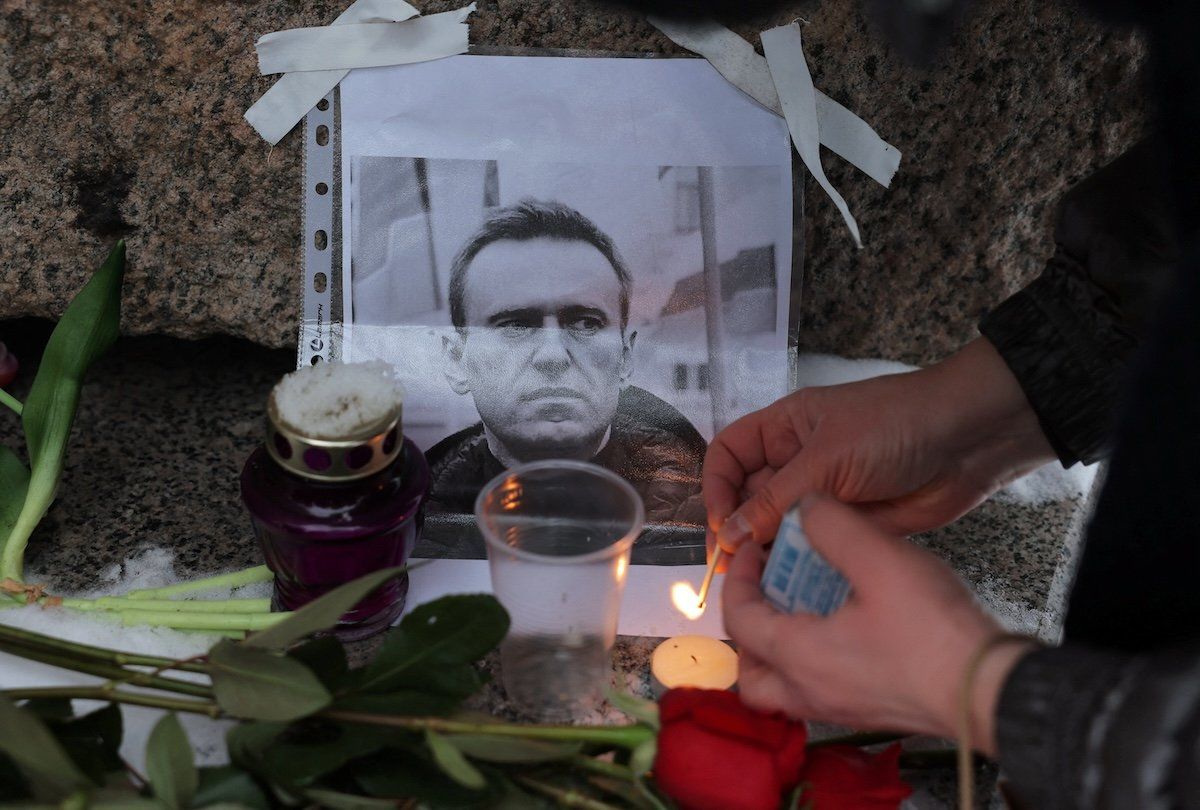Alexei Navalny, Russia’s most charismatic and outspoken opposition leader, has reportedly died in prison, where he was serving a decades-long sentence for extremism.
His death is on Vladimir Putin. Did Navalny die, or was he killed? We will of course never know. The Kremlin says he fell ill after a walk. He had been imprisoned in extremely harsh conditions on charges widely regarded as political. His lawyers have repeatedly drawn attention to threats to his health, which was the Russian prison system’s responsibility. Still, yesterday he appeared well enough in a court appearance by video link, cracking his characteristically dark jokes about how the “conditions are good.”
In 2020, recall, he was poisoned with a nerve agent in an attack that he blamed on the Kremlin. He later, on camera, tricked a Russian security official into appearing to admit responsibility for the hit.
His death is likely to make much bigger waves outside of Russia than inside it. The Kremlin’s control over media, repression of the opposition, and the self-imposed exile of many of Navalny’s biggest supporters since the invasion of Ukraine in 2022 mean that within Russia he is not a widely supported or popular figure. A survey taken last year showed just 9% of Russians approved of Navalny’s activities, while nearly 60% disapproved, and a quarter didn’t know who he was. Putin, of course, enjoys to enjoy approval ratings in the 80s.
Still, for Putin and those around him, Navalny was seen as a persistent liability: a charismatic leader who combined a strong dose of nationalism with a laser focus on the corruption that pervades all aspects of the Russian system. At the peak of his influence, more than a decade ago, Navalny was able to get hundreds of thousands of people into the streets to decry the ruling party of “crooks and thieves.”
Western governments will react with statements of outrage, but it’s not clear what else they can do to punish Putin. Russia is already under the stiffest sanctions the West can reasonably muster, given Western capitals’ understandable reluctance to rattle global energy markets with direct sanctions on Russia’s most lucrative oil and gas exports.
That said, keep an eye on Congress. Navalny’s death could reshape the deadlocked debate over providing more aid to Ukraine. Although Navalny’s death itself is not directly related to the Ukraine war, Kyiv’s supporters can now more readily portray opposition to aid as appeasement of a murderous dictator.
Putin personally, it is worth noting, is not a popular figure in the US. Although many Americans, particularly on the right, share his conservative nationalist worldview and his preference for cutting US aid to Kyiv, only 10% of Americans say he specifically does “the right thing” in global affairs. The death of Navanly will make an association with Putin specifically even more toxic.
In the long run, who really loses? Russians. Navalny’s death leaves the already-enfeebled Russian opposition without a uniquely gifted, fearless, and media-savvy leader. Navalny, for all his faults – and we got into those in our interview with the director of the documentary Navalny here – was genuinely committed to a less corrupt, more democratic, and more humane Russia.
His death puts that future significantly further out of reach.



















